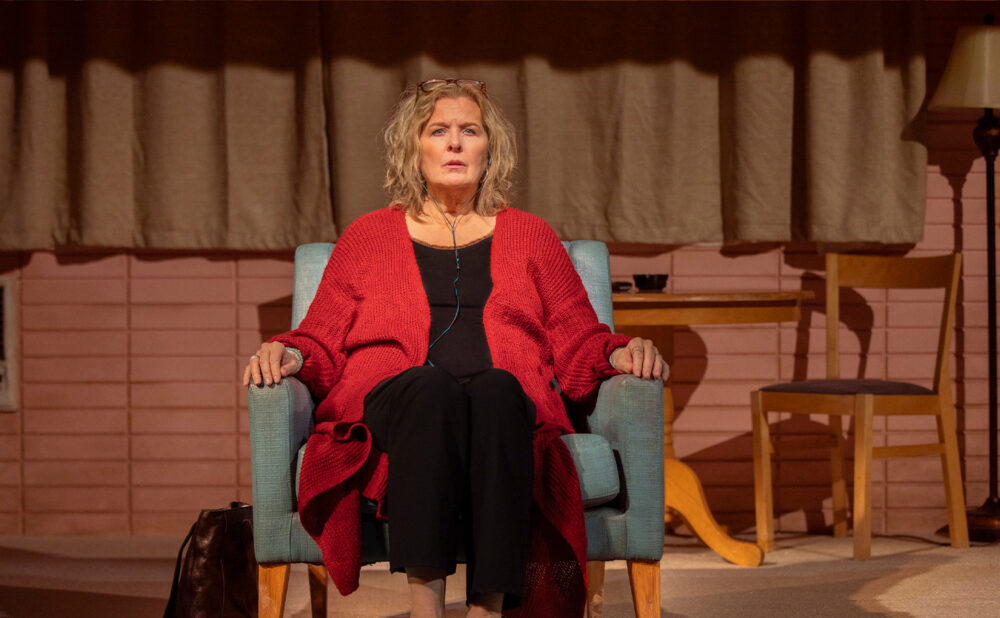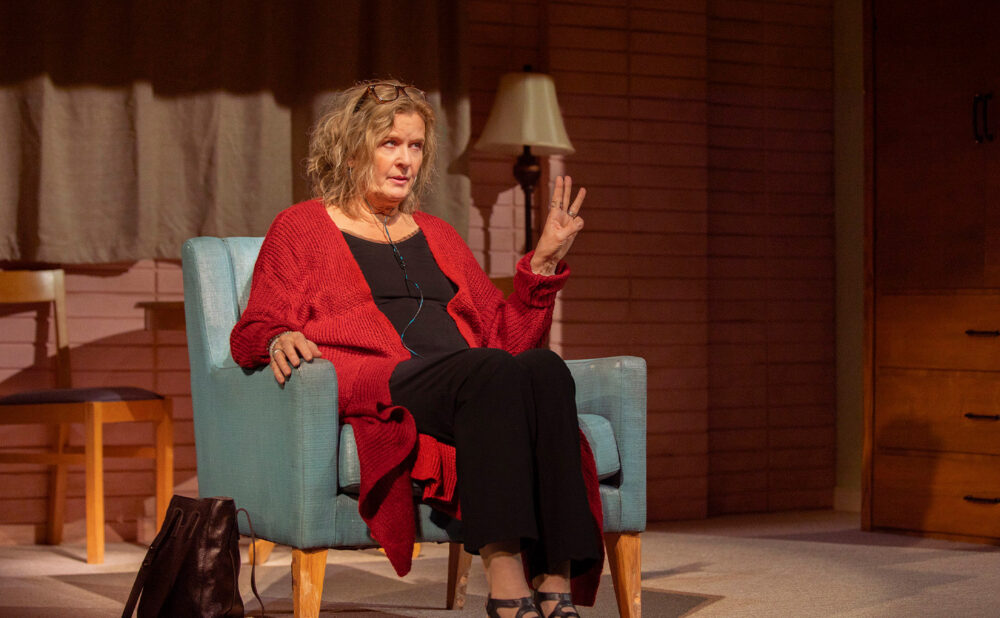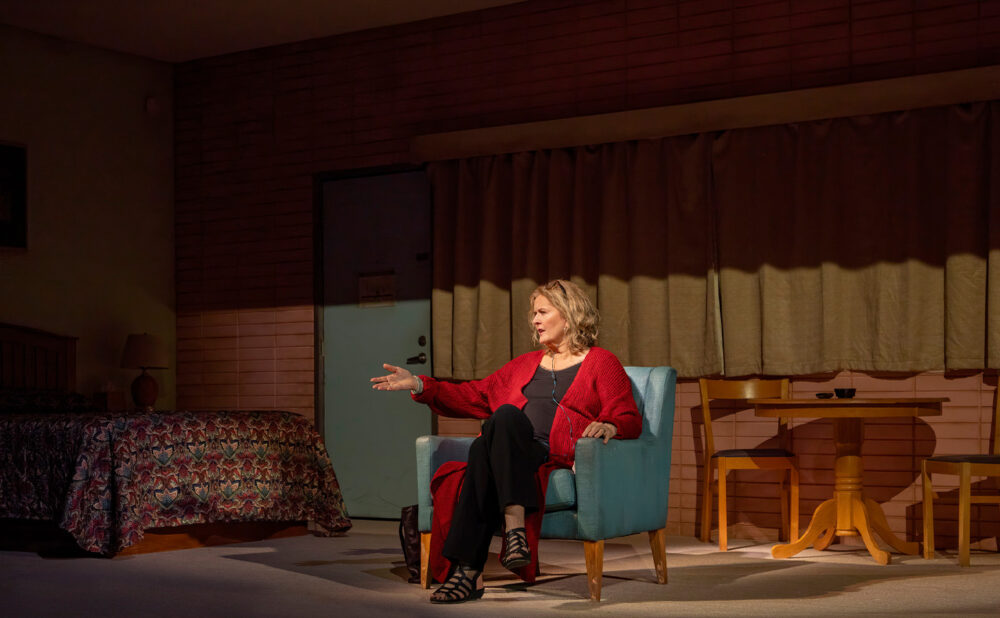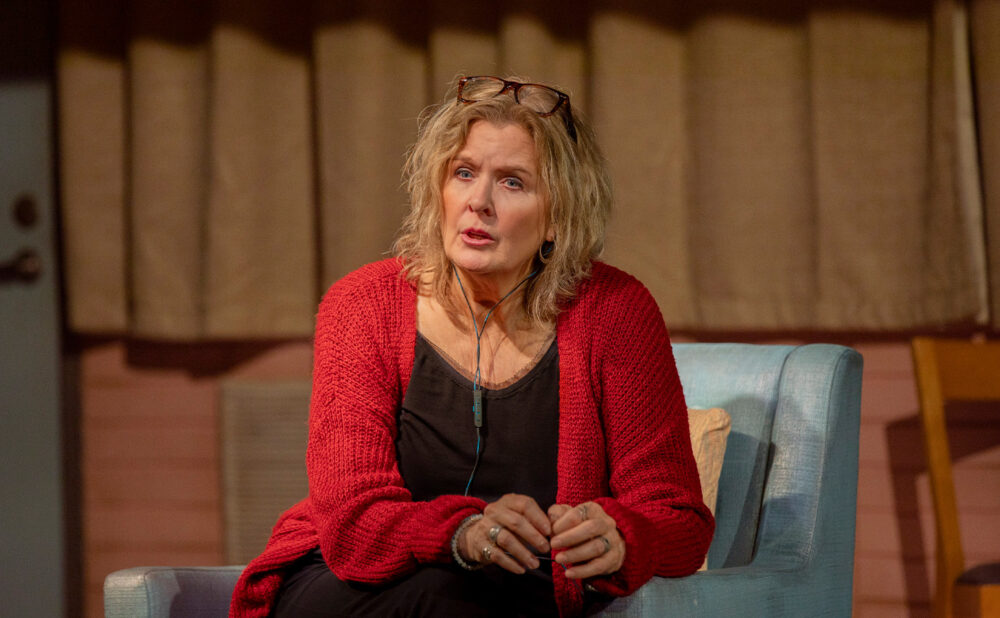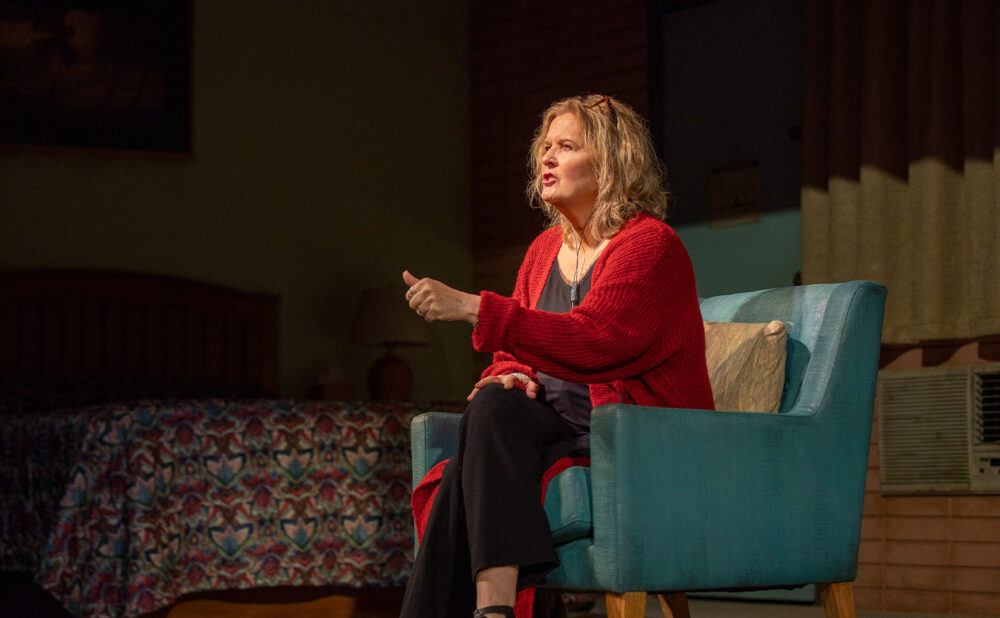Review: The inventive ‘Dana H.’ stands on its own
New York hit arrives courtesy of Crow’s Theatre
What: Dana H.
Where: Factory Theatre, 125 Bathurst St.
When: Now, until Sun., April 7
Highlight: The innovative choice to have actor Jordan Baker lip-synch to a voice recording of playwright Lucas Hnath’s mother
Rating: NNNNN (out of 5)
Why you should go: It’s a reminder that in this ancient art form boundless possibilities still lurk.
PARSING THROUGH the critical reaction to the New York runs (2020 at the Vineyard Theater, 2021 on Broadway) of Lucas Hnath’s Dana H., two things are near universal: the word “harrowing” and the sense that the play is one-of-a-kind.
Presented by Crow’s Theatre at Factory, a replica production of Dana H. put on by the original creative team, including director Les Waters, confirms little hyperbole plagued that reception. The show is singular, to the degree that rating it out of five feels coarse and almost beside the point. Dana H. is so inventive that it stands on its own.
Jordan Baker takes up the titular role. Already I’ve lied. She only provides Dana’s physical manifestation; the play is about Hnath’s mother, Dana Higginbotham, and Baker lip-synchs to recordings of her voice, cut together from interviews conducted by theatre artist Steve Cosson, a friend of Hnath. (Text projected at the show’s start explains all this.)
A hospice chaplain at the time of the 2015 interview, Dana looks back at five months of 1997, during which a volatile man named Jim kidnapped the Floridian, holding her hostage in a series of motel rooms not unlike the one set designer Andrew Boyce erects on the Factory stage.
The lip-synching hypnotizes. Beyond mouthing the text, Baker finds physical justification for the extra sounds present in the recordings, every shuffle of papers and foot tap. At first, it requires concentration to tie Baker to the voice speaking. But as the show progresses, Baker and the voice inch ever closer. It’s similar to the experience of watching a subtitled foreign film: though the gulf between text and speech is obvious at first, over time, one begins to forget they’re reading anything. The show also serves as a reminder of how distilled most theatrical dialogue is; even in verbatim theatre, it’s rare to hear uninterrupted thought with all its pauses and “ums,” at such length.
During Dana H., time seems to warp. The show is 75 minutes but feels longer in a manner I find powerful. Opposite to how a blockbuster movie can make three hours disappear without changing the spectator one bit, here time confronts, demanding total engagement.
Even for those bored by true-crime narratives or not invested in theatre enough to care about the show’s formal innovations, there’s plenty in Dana H. to latch onto. The autobiographical component hangs over the show like an elusive fog, raising questions: Does the material display signs of Hnath’s authorial presence? How would someone else have edited these recordings together? And a few surreal moments, which underline potential gaps between Baker’s physicalizing and Higginbotham’s real behaviour, prompt consideration of what truth means in this context.
Dana H. is a reminder that, in this ancient art form, boundless possibilities still lurk. They slink through halls, awaiting the right moment to approach the motel room door. I’m grateful Hnath and Waters let this one in.

